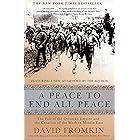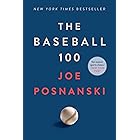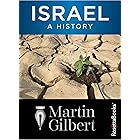Your Memberships & Subscriptions

Download the free Kindle app and start reading Kindle books instantly on your smartphone, tablet, or computer - no Kindle device required.
Read instantly on your browser with Kindle for Web.
Using your mobile phone camera - scan the code below and download the Kindle app.

Follow the author
OK
Confessions of a Hero-Worshiper Kindle Edition
As a boy, Stephen J. Dubner's hero was Franco Harris, the famed and mysterious running back for the Pittsburgh Steelers. When Dubner's father died, he became obsessed—he dreamed of his hero every night; he signed his school papers "Franco Dubner." Though they never met, it was Franco Harris who shepherded Dubner through a fatherless boyhood. Years later, Dubner journeys to meet his hero, certain that Harris will embrace him. And he is . . . well, wrong.
Told with the grit of a journalist and the grace of a memoirist, Confessions of a Hero-Worshiper is a breathtaking, heartbreaking, and often humorous story of astonishing developments. It is also a sparkling meditation on the nature of hero worship—which, like religion and love, tells us as much about ourselves as about the object of our desire.
- LanguageEnglish
- PublisherWilliam Morrow
- Publication dateOctober 13, 2009
- File size850 KB
Customers who bought this item also bought
Editorial Reviews
From Publishers Weekly
Copyright 2002 Reed Business Information, Inc.
From Library Journal
Copyright 2002 Reed Business Information, Inc.
From Booklist
Copyright © American Library Association. All rights reserved
About the Author
Stephen J. Dubner is an award-winning author, journalist, and radio and TV personality. He quit his first career—as an almost rock star—to become a writer. He has since taught English at Columbia, worked for The New York Times, and published three non-Freakonomics books.
Product details
- ASIN : B000TDGGR4
- Publisher : William Morrow (October 13, 2009)
- Publication date : October 13, 2009
- Language : English
- File size : 850 KB
- Text-to-Speech : Enabled
- Screen Reader : Supported
- Enhanced typesetting : Enabled
- X-Ray : Not Enabled
- Word Wise : Enabled
- Print length : 280 pages
- Page numbers source ISBN : 0380733145
- Best Sellers Rank: #1,580,591 in Kindle Store (See Top 100 in Kindle Store)
- #959 in History of Sports
- #1,059 in Soccer Biographies (Books)
- #1,168 in Football (Kindle Store)
- Customer Reviews:
About the author

Stephen J. Dubner is an award-winning author, journalist, and radio and TV personality. He quit his first career—as an almost-rock-star—to become a writer. He has worked for The New York Times and published three non-Freakonomics books. He lives with his family in New York City.
Customer reviews
- 5 star4 star3 star2 star1 star5 star61%25%14%0%0%61%
- 5 star4 star3 star2 star1 star4 star61%25%14%0%0%25%
- 5 star4 star3 star2 star1 star3 star61%25%14%0%0%14%
- 5 star4 star3 star2 star1 star2 star61%25%14%0%0%0%
- 5 star4 star3 star2 star1 star1 star61%25%14%0%0%0%
Customer Reviews, including Product Star Ratings help customers to learn more about the product and decide whether it is the right product for them.
To calculate the overall star rating and percentage breakdown by star, we don’t use a simple average. Instead, our system considers things like how recent a review is and if the reviewer bought the item on Amazon. It also analyzed reviews to verify trustworthiness.
Learn more how customers reviews work on AmazonTop reviews from the United States
There was a problem filtering reviews right now. Please try again later.
- Reviewed in the United States on August 16, 2006It's easy to get caught up in the little details of our lives, getting kids off to school, getting the car (or dog) fixed, paying the mortgage, raking the leaves, and doing the thousand other things that we do, so much that we forget or never get the big picture.
But it's impossible to get through even a chapter of Confessions of a Hero Worshipper, by Stephen J. Dubner, without stepping back taking a longer look at our own trajectories.
In fact, the book, which details a psychic journey of mythic proportions conducted by shuttle between New York and Pittsburgh, is nothing but a long look back at the childhood of the author, carefree until his father's unexpected death at 57 years of age. Dubner proceeded to do what any 10 year old kid would have done, set about to replace that figure, and he promptly selected a football player, Franco Harris of the Pittsburgh Steelers, who in very unlikely fashion proceeded to fill the gap in a profound way. For a time Dubner signed his school work, "Franco Dubner."
Dubner grew up, went off to college, got a job and pretty much forgot Franco, until a chance sighting of the former football star on a magazine cover ignited a fool's errand, for the author to actually meet his childhood hero and establish a connection.
In the process Dubner is forced to re-examine the loss of his father, look long and hard at how he filled that void and, more importantly, take stock of the remaining sense of loss and sorrow.
In reading the book, I found it impossible not to examine such holes in my past, as well.
I'm currently reading "Turbulent Souls," another book by Dubner, which details the strange spiritual and cultural journey taken by his parents, which led them from a life as Jews in New York City to life as committed Catholics on a farm in rural Upstate New York. That's where they all were when I came to know them during my year in Duanesburg as the 13 year shortstop of the local sandlot baseball team.
- Reviewed in the United States on December 27, 2012How could I not love this book? I was born in Pittsburgh, grew up watching the Steelers, and, like the author, lost my father when I was still in grade school.
However, Dubner doesn't get the Pittsburgh mindset, despite mining the Steelers story for years (as the articles in the P.S. demonstrate). Pittsburghers do not suffer from an inferiority complex as Dubner asserts. Perhaps living in New York has made him equate not being full of oneself with an inferiority complex. Like most Pittsburghers I know, Franco Harris is open, friendly, down-to-earth, hardworking but a little offbeat and not the least bit full of himself. Perhaps we like Franco not only because of the immaculate reception, but also because he is just like us.
- Reviewed in the United States on August 7, 2009Dubnar takes me back to those years of my childhood when I cared more about Earl Campbell's stats than my family or my school work. I couldn't help but thinking as I read about the adult Dubnar's still relentless quest to bond with Franco, that the guy is a bit of a creeper. Don't think I'd like him as a neighbor, but he wrote a profound book here. Funny how the bond he tried to force with Franco came so easily with Franco's Mom. I had no problem finishing this one.
- Reviewed in the United States on June 4, 2005This book compares the Jewish view to that of Christians. With the Jewish ban on idolatry, there are no people -- only things and places in pictures. That's strange, as my photos are full of views, beautiful or unusual scenes and things of the past, but very few people. In the Bible, there are prophets in abundance, but in the New Testament, the pictures are most always a glorified Jesus and his apostles. A messiah is less a person than an idea, a hope, and the yearning for the world to have a happy ending.
Thomas Carlyle, a pious Scottish Presbyterian, who died in 1881, wrote that hero worship is a human condition that "cannot cease till man himself ceases." I've had many heroes in my time. One of them is listed below.
A hero is someone we admire for who he is, but not so much because he is someone special to us when we need someone to love, a person who can take the place of a busy family, someone you don't come home to and have to listen to their complaints. A hero is perfect, he's an image we conjure up in our minds as being the person we would like to be.
Lincoln was shot five days after Lee's surrender at Appomattox on Good Friday; Booth was a crazed hero-worshipper and had to die for his mistake. Each era in America has its hero. Charles Lindbergh in 1927 because he did what no one else had done. General MacArthur in WWII because of his determination and defiance to do what his heart dictated. A Civil War hero, Abner Doubleday, was dubbed "father of baseball" after his death.
We all know that politicians say one thing behind closed doors and another in public. Movie stars and pop singers were "images" created for a purpose, to give us an imaginary world to enter in the theaters. The superheroes of the comics were Jewish American creations.
All of this history to establish his hero-worship for a ball player because of his will to win, mainly the will to survive. His father had been a newspaperman. He became a writer, thus subconsciously was emulating his dead father who was the real hero in his mind. A Mother is a Mother is a Mother...how can she be a hero? This book is "especially for those who read about others to find the truth in themselves."










